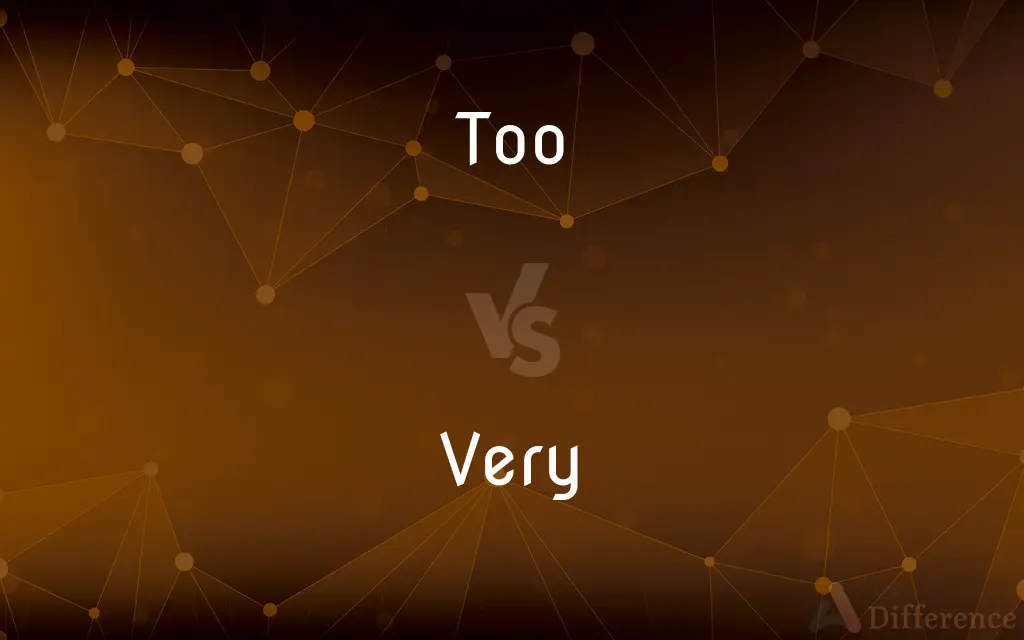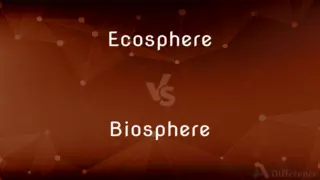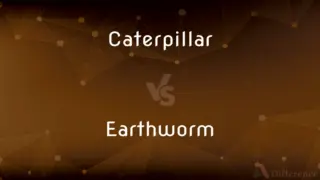Too vs. Very — What's the Difference?
Edited by Tayyaba Rehman — By Fiza Rafique — Updated on September 28, 2023
"Too" indicates excess or an undesirable extent, while "Very" simply intensifies the degree of something positively. For example, "It's too hot to go outside" means it's excessively hot, while "It's very hot outside" means it's extremely hot.

Difference Between Too and Very
Table of Contents
ADVERTISEMENT
Key Differences
"Too" and "Very" are both adverbs used to modify or intensify the meaning of an adjective, adverb, or verb, but they convey different nuances.
"Too" typically expresses an excessive or undesirable degree. For instance, in the sentence "She ate too much cake," "too" indicates that the amount of cake consumed exceeded what is considered appropriate or healthy. It implies a negative consequence or an unwanted result.
On the other hand, "Very" is used to emphasize the degree of something without implying excess or negativity. In the sentence "He is very talented," "very" emphasizes the high level of talent in a positive way. It intensifies the adjective "talented" without indicating that it's too much or undesirable.
In summary, "too" emphasizes excess or negativity, while "very" simply intensifies without connotations of excess or desirability.
Comparison Chart
Intensity
Excessive or undesirable degree
Positive emphasis on intensity
ADVERTISEMENT
Adjective Modifiers
"Too cold," "Too expensive"
"Very beautiful," "Very happy"
Verb Modifiers
"She talks too loudly," "He eats too quickly"
"He works very diligently," "She sings very well"
Negative Connotations
Often implies something undesirable
Typically lacks negative connotations
Usage Example
"The coffee is too hot to drink."
"The sunset is very beautiful."
Compare with Definitions
Too
Too much food, so I couldn't finish my meal.
Very
He's very skilled in playing the guitar.
Too
It's too noisy for studying here.
Very
It's very hot outside today.
Too
I want to come too, not just them.
Very
She's very excited about the trip.
Too
The rain came too late for the crops.
Very
In a high degree; extremely
Very happy.
Very much admired.
Too
If you don't like this one, I have another book too.
Very
Truly; absolutely
The very best advice.
Attended the very same schools.
Too
To a higher degree than is desirable, permissible, or possible; excessively
He wore suits that seemed a size too small for him
He was driving too fast
Very
Very Used in titles
The Very Reverend Jane Smith.
Too
In addition; also
Is he coming too?
Very
Complete; absolute
At the very end of his career.
Too
In addition; also
He's coming along too.
Very
Being the same; identical
That is the very question she asked yesterday.
Too
More than enough; excessively
She worries too much.
Very
Being particularly suitable or appropriate
The very item needed to increase sales.
Too
To a regrettable degree
My error was all too apparent.
Very
Used to emphasize the importance of what is specified
The very mountains shook.
Too
Very; extremely; immensely
He's only too willing to be of service.
Very
Being nothing more than what is specified; mere
The very act of riding in the car made him dizzy.
Too
(Informal) Indeed; so
You will too do it!.
Very
(Archaic) Genuine; true
"Like very sanctity, she did approach" (Shakespeare).
Too
(focus) Likewise.
Very
(literary) True, real, actual.
The fierce hatred of a very woman.
The very blood and bone of our grammar.
He tried his very best.
We're approaching the very end of the trip.
Too
(conjunctive) Also; in addition.
Very
The same; identical.
He proposed marriage in the same restaurant, at the very table where they first met.
That's the very tool that I need.
Too
(degree) To an excessive degree; over; more than enough.
Very
With limiting effect: mere.
Too
To a high degree, very.
She doesn't talk too much.
I'm not too sure about this.
Very
To a great extent or degree.
That dress is very you.
Not very many (of them) had been damaged.
She's very like her mother.
‘Is she busy?’ ― ‘Not very.’
Too
Used to contradict a negative assertion.
"You're not old enough yet." ― "I am, too!"
Very
Conforming to fact, reality or rule; true.
Too
Used for emphasis, without reference to any previous statement.
Very
(with superlatives) Used to firmly establish that nothing else surpasses in some respect.
He was the very best runner there.
Too
Over; more than enough; - noting excess; as, a thing is too long, too short, or too wide; too high; too many; too much.
His will, too strong to bend, too proud to learn.
Very
True; real; actual; veritable.
Whether thou be my very son Esau or not.
He that covereth a transgression seeketh love; but he that repeateth a matter separateth very friends.
The very essence of truth is plainness and brightness.
I looked on the consideration of public service or public ornament to be real and very justice.
Too
Likewise; also; in addition.
An honest courtier, yet a patriot too.
Let those eyes that viewThe daring crime, behold the vengeance too.
O that this too too solid flesh would melt.
Such is not Charles his too too active age.
Very
In a high degree; to no small extent; exceedingly; excessively; extremely; as, a very great mountain; a very bright sun; a very cold day; the river flows very rapidly; he was very much hurt.
Too
To an excessive degree;
Too big
Very
Precisely as stated;
The very center of town
Too
In addition;
He has a Mercedes, too
Very
Being the exact same one; not any other:;
This is the identical room we stayed in before
The themes of his stories are one and the same
Saw the selfsame quotation in two newspapers
On this very spot
The very thing he said yesterday
The very man I want to see
Very
Used to give emphasis to the relevance of the thing modified;
His very name struck terror
Caught in the very act
Very
Used to give emphasis;
The very essence of artistic expression is invention
The very back of the room
Very
Used as intensifiers; `real' is sometimes used informally for `really'; `rattling' is informal;
She was very gifted
He played very well
A really enjoyable evening
I'm real sorry about it
A rattling good yarn
Very
Precisely so;
On the very next page
He expected the very opposite
Very
I appreciate your help very much.
Very
This cake is very delicious.
Common Curiosities
What does "too" mean in a sentence?
"Too" signifies an excessive or undesirable extent, often implying negativity. Example: "The food was too spicy."
How is "very" different from "too"?
"Very" intensifies without implying excess or negativity. Example: "The movie was very entertaining."
Can "too" and "very" modify verbs?
Yes, both can modify verbs. "Too" implies an extreme degree, while "very" simply intensifies the action. Example: "She talks too loudly" vs. "She talks very confidently."
Is "very" always positive?
"Very" typically emphasizes positively but can be used neutrally. Example: "It's very early in the morning."
Can "too" be used in a positive context?
Yes, but it usually implies something in excess. Example: "He's too kind for his own good."
Share Your Discovery

Previous Comparison
Ecosphere vs. Biosphere
Next Comparison
Caterpillar vs. EarthwormAuthor Spotlight
Written by
Fiza RafiqueFiza Rafique is a skilled content writer at AskDifference.com, where she meticulously refines and enhances written pieces. Drawing from her vast editorial expertise, Fiza ensures clarity, accuracy, and precision in every article. Passionate about language, she continually seeks to elevate the quality of content for readers worldwide.
Edited by
Tayyaba RehmanTayyaba Rehman is a distinguished writer, currently serving as a primary contributor to askdifference.com. As a researcher in semantics and etymology, Tayyaba's passion for the complexity of languages and their distinctions has found a perfect home on the platform. Tayyaba delves into the intricacies of language, distinguishing between commonly confused words and phrases, thereby providing clarity for readers worldwide.















































